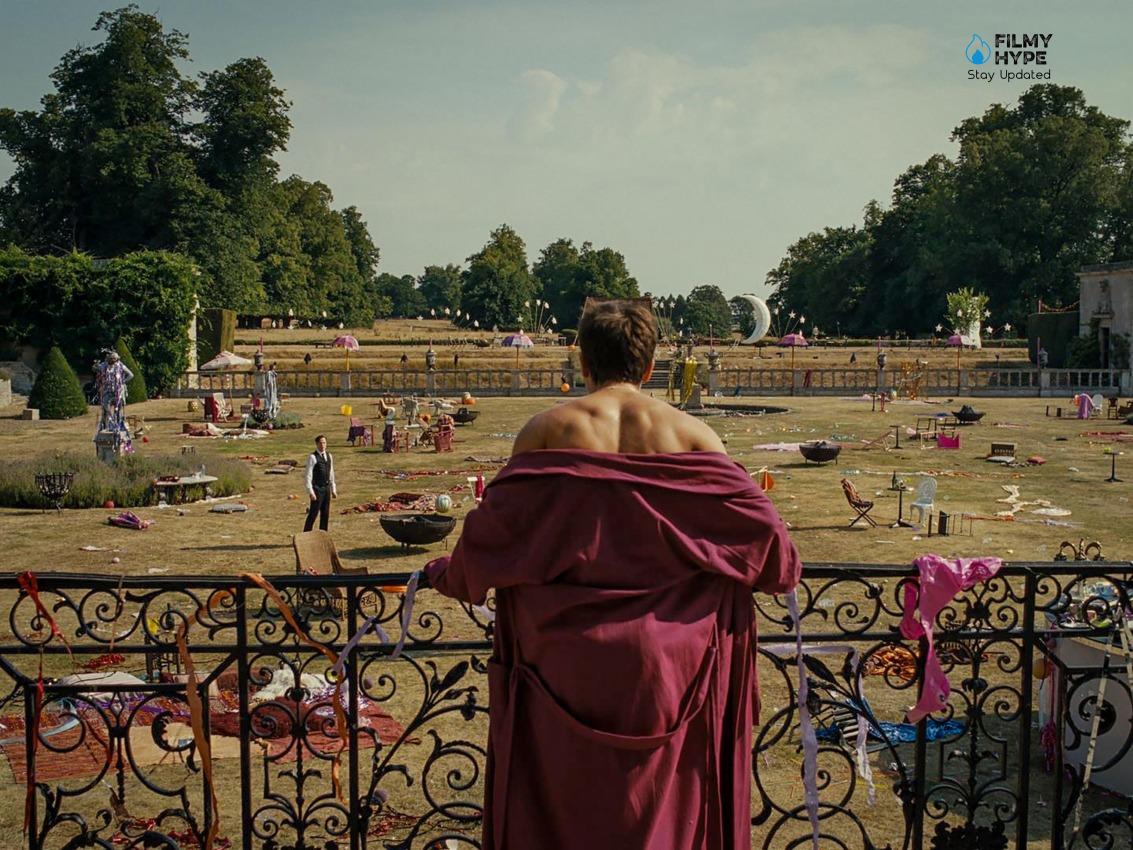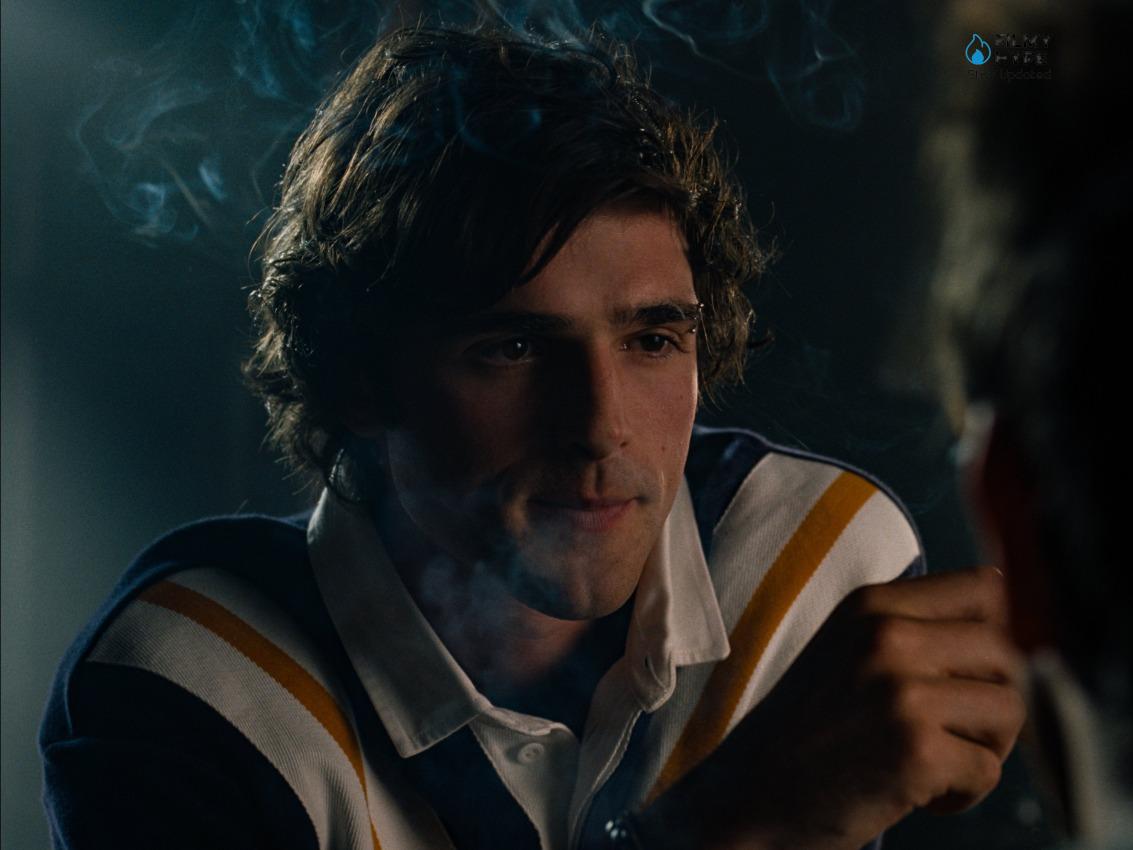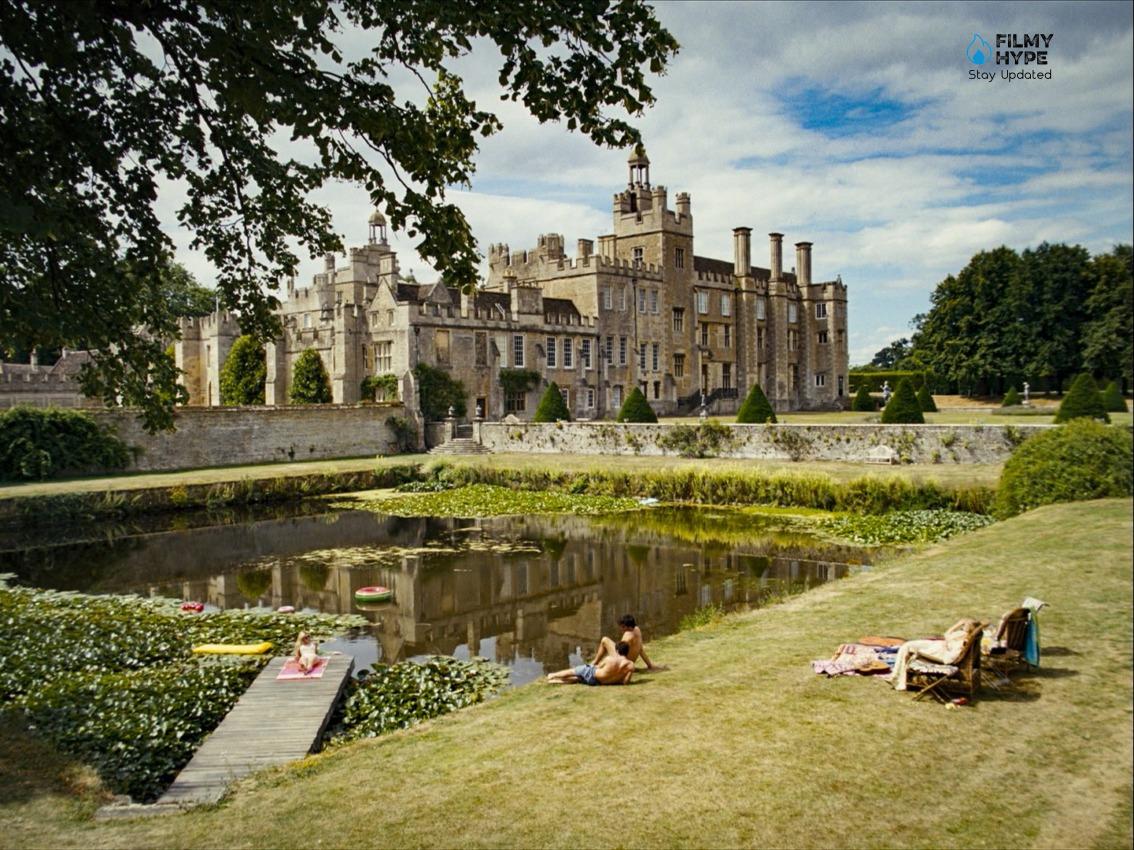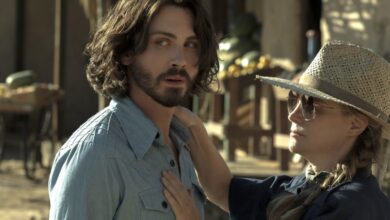Saltburn Ending Explained: What Happened To The Catton Family And What Oliver’s Plan Was?
Saltburn is available on Prime Video from December 22, 2023. The new film starring Barry Keoghan as Oliver Quick, Jacob Elordi as Felix Catton, and Rosamund Pike as Elspeth Catton was highly anticipated by the couples. This is one of the most controversial films of 2023, which is coming to an end. The protagonist is Oliver, who is a student struggling to find his place at Oxford University. Suddenly he enters the world of the rich and charming Felix, who invites him to spend a summer with his eccentric family on the estate. Director and screenwriter Emerald Fennell certainly knows how to play with audience expectations. Saltburn, her second film after her debut A Promising Woman, awarded the Oscar for best screenplay, arrives today on Prime Video and offers another ending full of twists.

Among the big films of fall 2023, Saltburn may be among the ones that will most leave viewers wondering about what they just saw. This confusion isn’t actually due to the plot itself, as the film’s events and twists are pretty easy to follow. On the contrary, it is the questions about the meaning of the story and its symbolism that particularly intrigue the public. Among the many themes addressed by Saltburn, there are privilege, love, envy, loss, and obsession, each full of a very strong ambiguity. That’s why, in this explanation of the ending of Saltburn, we try to help you process everything that happens in the final act of this psychosexual thriller, analyzing its conclusion from different perspectives.
Saltburn Ending Explained: The Story Plot
The plot of Saltburn immediately introduces Oliver, who would like to find a place among the elite of Oxford University in 2006. He helps the popular and charming Felix and so they become friends. When the lessons end, the latter invites him to spend the summer on his large estate in the countryside, called Saltburn. Here they spend the summer holidays with Felix’s closest people: his friend Farleigh, his sister Venetia, and his parents Elsbeth and James. Here Oliver gets a glimpse into the life of excess of the rich. But there is no shortage of feelings such as hatred and jealousy, which lead to a tragic turning point.
In Saltburn, Oliver meets Felix’s family: his absent-minded father Sir James (Richard E. Grant), his “afraid of ugliness” Mother Elspeth (Rosamund Pike), and his anorexic and depressed sister Venetia (Alison Oliver). Then there is a family member from whom Oliver needs no introduction: Farleigh Start (Archie Madekwe), Felix’s cousin, an African American boy who desperately tries to cling to the status of his British family and who has already clashed with Keoghan’s character in Oxford. In Saltburn, Oliver develops a morbid obsession with Felix, whose position and charisma he envies, and, when Venetia and Farleigh try to make him understand that Felix only sees him as a temporary “toy” to play with, Oliver responds by grabbing them both aims perversely.
Saltburn Ending Explained: What Happened To The Catton Family And What Oliver’s Plan Was?
In the final act of the film, the Catton family prepares a huge “A Midsummer Night’s Dream”-themed birthday party for Oliver, but Felix has now figured out Oliver’s manipulations. The morning before the party, Jacob Elordi’s character takes his friend on a “surprise trip”: to Oliver’s parents’ house. Contrary to the sad stories Oliver tells, it turns out that his parents are alive, friendly, middle class, and fine in every way. At the party, Felix, disgusted by Oliver’s lies, wants nothing more to do with him, although Oliver manages to track him down in Saltburn‘s labyrinth to declare his love for him.

The morning after the party, Felix’s body is found dead in the labyrinth. Sir James and Elspeth try to pretend that everything is fine, but Venetia and Farleigh cannot maintain this ridiculous facade. After the funeral, Oliver has sex with Felix’s grave. Shortly after her brother’s death, Venetia commits suicide and, while Elspeth wants to keep Oliver close, Sir James wants to pay Oliver to leave Saltburn. Years pass and the film brings us back to the present. Sir James dies, apparently of natural causes, and Oliver, now grown up, is reunited with Elspeth. She welcomes him to Saltburn with open arms, but in reality, he has enough “accidents” to end up on life support. At that point, we discover that the person to whom Oliver’s initial story is addressed is Elspeth, now dying and confined to bed: to her, the boy confesses to having killed Felix by poisoning his drink, before detaching Elspeth from life support. With the entire Catton family destroyed, Saltburn is now in possession of Oliver, who we see dancing naked and triumphant in the final sequence of the film.
The Middle Class as an “Intrusion”
Saltburn‘s premise makes it easy to compare Emerald Fennell’s film to the recent wave of dark satires about the haves and have-nots, in the style of Parasite or The Menu. However, if Saltburn‘s style is incredibly ironic about the eccentric foibles and uncomfortably callous attitudes of the very rich Cattons, her attitude towards the upper class seems far less cruel than other films of this type. The true villain, and whoever triumphs in the end, is not a rich person or a great systemic force; rather, he is Oliver, the middle-class interloper.
The sympathy that Oliver can initially arouse in the audience as an outsider will be progressively lost both due to his twisted actions and the total lack of psychological identification with this character. If we read Saltburn as a commentary on class, the fact that Oliver lies that he is poor and struggling, when in reality he is middle class, has a rather decent life at home, and is simply envious of those who have more than him, it might even come across as a reactionary message. For this reason, it is perhaps best not to identify Oliver as representative of his socio-economic background. However, some critics have described the film as belonging to the ” eat the rich ” genre: even if Oliver seems even more sociopathic than his rich hosts, one can still enjoy watching Oliver slowly destroy the weirdos and out-of-touch Catton and claim Saltburn for themselves.
Did Oliver Really Love Felix?
While class analysis is perhaps not the best angle for delving into Saltburn, it is perhaps best to focus on the main source of character drama: Oliver’s feelings for Felix. In the film’s opening narration, Oliver states that he ” loves ” Felix but has never been ” in love ” with him. Both Oliver and Felix talk about “love” for each other throughout the film, which at least in Oliver’s case goes beyond considering each other good friends and turns into a clear homoerotic sexual fixation. In the end, Oliver declares that he “hated” Felix, which seems like a contradiction, but it’s possible that he loved and hated the same person.

Of course, there is much debate about what Oliver means by the term “love.” The character presents himself as a complete sociopath, who lacks empathy for others and has no problem manipulating and cruelly hurting people, so he is likely incapable of feeling “love” according to the traditional definition. However, regardless of whether his feelings can be attributed to the emotion of love or not, he certainly knows the concepts of passion and obsession. His obsession with Felix is partly based on sexual attraction, but beyond that, it seems to be mostly based on envy. Oliver wants what Felix has: his social status, his wealth, and his natural ability to charm everyone around him. Eventually, Oliver may get all of Felix’s old possessions, but getting his friend’s assets is another matter entirely.
Venetia: Beyond the Grotesque Facade of the Cattons
With its protagonist’s psychological inscrutability, Saltburn aims more for shock and a sense of general intrigue than for building deeper bonds with the characters. Nonetheless, there is a scene towards the end of the film that stands out as the most emotionally genuine segment of the entire film, and which stands as the film’s most biting joke about British high society. It’s the scene where Felix is found dead, and Sir James and Elspeth refuse to abandon their pre-existing plans despite their son’s death.
Gathered around the dining room table, the parents just want to talk about how great Oliver’s birthday party was while enjoying a nice meal. In contrast, Farleigh and Venetia – the two most genuinely likable characters – react to the death with actual tears. When Farleigh tries to explain how absurd and cruel it is to pretend nothing is happening, the parents respond with the order to ” eat the damn cake ” and with the statement that ” no one wants to hear your damn American sentimentality.” In this sense, the Cattons represent the rigid “keep calm and carry on” attitude taken to a comically unhealthy extreme. Even outside of the specific cultural context, this scene is striking in its universal identification of the struggle to pretend that things are normal in the face of tragedy.
How Felix Dies?
Oliver is not as innocent as he seems and this can be understood already at the beginning of the story. He implements a well-thought-out plan. He spends a few days of happiness acting like a rich man with tennis, dinners, and tuxedos. But then his relationship with Felix begins to crumble. The latter discovers that Oliver is lying about his family. He initially says that his mother has drug problems and that his father is dead. Instead, it turns out that Oliver’s parents are a middle-class couple, and both are alive and happy.
Although Felix no longer trusts him, the Catton family continues to celebrate Oliver’s birthday in Saltburn. At one point, Oliver follows Felix into the garden maze and is drunk. An argument breaks out between them, and things seem to get worse, while the former returns to the party. The next day Felix is found dead right in the labyrinth of the garden. The funeral takes place and also a rather disturbing scene that Oliver creates on Felix’s grave. Meanwhile, Farleigh begins to wonder why Oliver would stay there with them. But here the Catton family supports the students.
Saltburn Why Does Oliver Kill the Cattons?
Another murder occurs in the film Saltburn: Venetia also dies. Felix’s sister is found dead in a bathtub, where there is a razor. Since it is known that Venetia has always fought for her mental health, it is considered a suicide. Meanwhile, Oliver begins to have a very close relationship with Elsbeth. At one point, James offers him a large sum of money to make him go away. Some time passes and Elsbeth goes to Oxford to Oliver, to whom she lets him know that James is also dead. Oliver thus returns to Saltburn, becoming Elsbeth’s support and companion. But then, shortly afterward, Elsbeth also dies in her hospital bed. At this point, the plan implemented by Oliver in Saltburn is revealed. Why did he kill all the Cattons? It turns out that he had planned everything from the beginning, that is, from the first meeting with Felix, from whom he gained trust and sympathy. Oliver’s plan has always been to take possession of the Catton family’s wealth.
Why Did Oliver Leave the Mansion?
Realizing that each of the members of the Catton family is dying little by little, James asks Oliver to leave the place. However, the boy refuses to leave the property, feigning concern for Elspeth’s health. So James takes a desperate measure: he bribes him with a large amount of money and, just as he expected, Quick leaves that same day.

The Meeting between Elspeth and Oliver?
Some years later, Elspeth and Oliver have a seemingly chance meeting in a coffee shop, after the young man discovers that James has died. There, the woman invites him to return to Saltburn. He accepts and, after a few months together, Elspeth ends up seriously ill. We see her on her deathbed!
What Was Oliver’s Plan?
As we can already imagine, Oliver is the real person responsible for the tragedies that surrounded the last years of the Catton family: the boy devised a plan to keep his fortune, which began long before arriving at the property. At the end of the film, we see that he is talking to a comatose Elspeth, assuring him that “accidents are for people like you. But for the rest, there is work”. In that sense, the film reveals some crucial facts about this master plan:
- Oliver damaged the tires of Felix‘s bicycle to have his first meeting with him in Oxford.
- He killed Felix by poisoning his drink in the labyrinth after the millionaire discovered that he had lied to him.
- He left the razor blades next to Venetia‘s bathtub, knowing of her suicidal thoughts.
- He was responsible for Farleigh‘s expulsion
- He planned the “chance meeting” with Elspeth in the cafe
- He had Elspeth transfer her money and the property of Saltburn to him
He killed Elspeth, after removing the life support that was still keeping her alive.
In this way, Oliver is left as the sole owner of the residence, dancing naked to the song “Murder on the Dancefloor” by Sophie Ellis-Bextor and confessing his true intentions.
“I hated all of you. And they made it so easy. Pampered dogs, sleeping on their bellies. No natural predators. Well… almost none,” she says.
Emerald Fennell on the Film’s Ending
Some comments from Emerald Fennell regarding the main themes of the film can also be useful in trying to elaborate its ending. Speaking to Moda, the director avoided answering questions about racism, sexism, and classism, considering these political issues secondary to her main focus. “It’s really a movie about first love,” she said. “In general, because I’m quite simplistic, I think it’s all about sex, and I think our fetishization of the cottage and titles is completely sadomasochistic… I’m completely obsessed with the way we relate to the things we desire.” Desire and even hate and knowledge are unattainable: things we know we can never love, whether it’s a person, a home, or a culture. Yet we can’t help but be desperately attracted to it. The question is: why?“.
Saltburn‘s Guests as Characters in the Gothic Tale
Another key to understanding Saltburn is to focus on its connections with Gothic romance and horror stories. In the film’s press notes, Fennell cited Messenger of Love, Brideshead, and Rebecca as influences. “Metaphorically it’s a vampire film,” Fennell said at the BFI London Film Festival. “It’s about what we do when we’re completely obsessed with something or someone. And I hope it’s part of the classical Gothic tradition, where love and hate are very, very close“.
Entering spoiler territory after a screening at the Academy Museum in Los Angeles, Fennell delved into how the vampire metaphor applies to Oliver, who is “an outsider sucking the marrow of the life he envies”. We could say that this metaphor works both ways, as the Cattons also suck the life energy from their hosts, which is exemplified by the way Elspeth treats her troubled friend of hers “Poor Darling” Pamela (Carey Mulligan).
Nudity: Between Pain and Triumph
We can’t talk in-depth about the ending of Saltburn without referring to the nudity factor, which involves the “reveal” of Oliver’s naked body. Previously, we saw Oliver undressing to rest on the lawn with Felix and Venetia in a previous scene: his private parts are not shown, but the two brothers sarcastically comment on the size of his penis. There is then an ambiguous side shot of the member in the very dark scene of the tomb, to arrive at the finale, which ends with a frontal nude sequence that lasts a few minutes. In this regard, as a final consideration, it is interesting to note that Emerald Fennell has stated that she believes that on-screen nudity is “about pain or triumph” rather than eroticism, which is why the film’s usual sex scenes focus primarily on the faces of the actors, while the moments of actual nudity concern pain (the tomb scene) or triumph (the ending).





